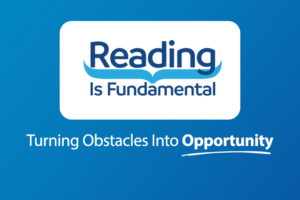By Tamara Bibby, Client Engagement Manager, America's Charities | February 6, 2024
Crafting Successful Charity Eligibility Guidelines for Your Corporate Matching Program
Corporate matching programs are powerful tools for amplifying the impact of employee charitable donations. They allow employees to contribute to nonprofit organizations of their choice, with the company matching those donations, effectively doubling the support provided to charitable causes.
In this post, we will explore guidelines to ensure that your corporate matching program operates smoothly and aligns with your company’s philanthropic goals.
Charity Eligibility Guidelines: The Backbone of Corporate Giving
Charity eligibility guidelines are the backbone of any corporate matching program. They provide a clear and structured framework for how the program operates. Think of them as the rules of engagement, ensuring that every dollar donated through the program serves a purpose that resonates with your company’s mission, values, and broader goals.
Effective guidelines will help you:
- Safeguard Company Values: Every company has its own set of values that guide decision-making and operations. Charity eligibility guidelines act as a protective shield for these values. They make sure that the causes and organizations supported through the corporate matching program align with and reinforce these values. These guidelines act as a filter, allowing only those charitable endeavors that reflect your company’s core beliefs and commitments. This ensures that your company’s philanthropic efforts remain authentic and in harmony with its identity.
- Mitigate Risk: Charity eligibility guidelines aren’t just about values and impact; they’re also a means of fulfilling legal and ethical obligations. Many countries and each state have tax laws and regulations governing corporate charitable contributions. These guidelines ensure that your corporate matching program remains compliant with these laws, protecting your company from legal complications. Additionally, they help maintain ethical standards within the program by setting clear expectations for which organizations qualify. This helps prevent misuse of funds, ensuring that donations are directed toward genuine nonprofit organizations rather than potentially fraudulent or questionable entities.
- Build Employee Engagement and Satisfaction: Your employees are a vital part of the corporate matching program. They are the ones who contribute, select the causes close to their hearts, and engage with the program. Clear charity eligibility guidelines empower your employees to make choices that matter to them personally. When employees know that their donations are being matched by the company for causes they believe in, it boosts their morale and engagement. It shows that their company values their philanthropic interests and supports their desire to give back to the community.
- Simplify Administration: The purpose of well-defined guidelines is to reduce administrative complexities associated with the corporate matching program, making it easier for employees to participate and for program administrators to manage and oversee the program.
- Maximize Impact: Corporate giving is not just about generosity; it’s also about making a positive impact. Effective charity eligibility guidelines play a pivotal role in maximizing this impact. By carefully selecting which nonprofit organizations qualify for matching contributions, you’re channeling resources to where they can do the most good. Rather than spreading donations thinly across a wide array of causes, these guidelines enable your company to focus its giving on specific areas or organizations that have the potential to create significant change. This concentrated approach can lead to more meaningful and measurable outcomes, allowing your company to see the direct influence of its contributions.
Steps to Creating Charity Eligibility Guidelines
- Identify Objectives: Clearly define the objectives and desired outcomes of your corporate matching program. What impact do you want to achieve? How does this align with your company’s mission and values?
- Conduct a Needs Assessment: Assess the needs and priorities within your company’s philanthropic focus areas. Consider the causes that resonate most with employees and align with your business operations.
- Legal and Compliance Review: Collaborate with your legal and compliance teams to ensure that your guidelines comply with all relevant laws and regulations. This includes tax laws governing corporate charitable contributions.
- Financial Considerations: Determine the budget for your corporate matching program. Understand how much your company is willing to match per employee, per donation, or in total. Ensure your guidelines align with these financial constraints.
- Draft Eligibility Criteria: Based on the research and input from stakeholders, draft clear and comprehensive eligibility criteria. Include the types of organizations that qualify, geographic considerations, and any specific exclusions.
- Approval Process: Establish a transparent process for employees to request matching contributions. This should include clear instructions on how to submit requests, documentation requirements, and expected turnaround times for approvals.
- Monitoring and Reporting: Implement a system for ongoing monitoring of charitable organizations’ eligibility and performance. Regularly report the impact of the program to employees, showcasing the difference their contributions make.
- Employee Education: Develop educational materials and resources to help employees understand the eligibility guidelines and make informed giving decisions. Consider hosting workshops or webinars to provide guidance.
- Communication Strategy: Create a communication plan to inform employees about the program and the eligibility criteria. Regularly remind them of deadlines and celebrate the impact of their giving.
- Feedback Loop: Establish a mechanism for employees to provide feedback on the program and guidelines. Use this feedback to continuously improve and adapt your corporate matching program.
In the world of corporate philanthropy, crafting effective charity eligibility guidelines is like laying the foundation of a sturdy and impactful building. These guidelines ensure that your corporate matching program not only aligns with your company’s mission and values but also empowers employees to make meaningful contributions to the causes they care about. We’ve explored a step-by-step approach to create guidelines that are robust, compliant, and engaging.
Remember, these guidelines aren’t static documents; they’re dynamic tools that evolve with your company’s changing priorities and the philanthropic landscape. By following these guidelines, you’re not only enhancing your program’s efficiency but also amplifying its potential to make a positive impact on the communities and causes that matter most.
For more information on Corporate Matching Gift Programs and best practices, download America’s Charities’ “Matching Gifts: The Definitive Guide for Employers.”

Get Resources and Insights Straight To Your Inbox
Explore More Articles
Workplace Fundraising + Volunteering Summit (April 2nd and 3rd, 2025)
Join us in attending this virtual summit! The America’s Charities team is joining up with other leading voices in the workplace giving space for a…
Read ArticleThe Time to Act is Now
The results of the 2024 National Assessment of Educational Progress (NAEP) are in, and the findings are, in a word, heartbreaking. This assessment serves as…
Read ArticleOpen Position: Non-Profit Account Manager, Employee Assistance Funds & Scholarships (Remote – Full Time)
We are professional, agile, customer-centric and our goal is to inspire employees and organizations to support causes they care about. We help nonprofits fundraise unrestricted,…
Read ArticleGet Resources and Insights Straight To Your Inbox
Receive our monthly/bi-monthly newsletter filled with information about causes, nonprofit impact, and topics important for corporate social responsibility and employee engagement professionals, including disaster response, workplace giving, matching gifts, employee assistance funds, volunteering, scholarship award program management, grantmaking, and other philanthropic initiatives.




